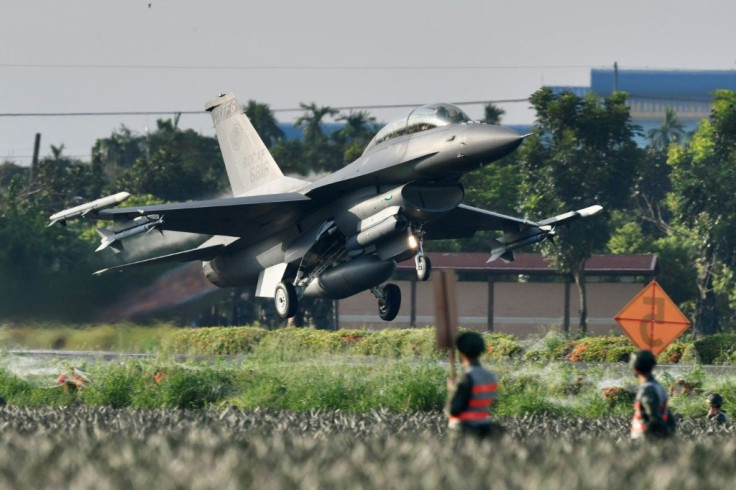China, U.S. Prep For Short And Swift Taiwan Clash, But May Get A Long War: Book
KEY POINTS
- China may launch a surprise missile attack at the U.S. military bases in the Pacific
- Both the countries have the ability to sustain losses, making the war a long one
- The researchers recommend the U.S. amass key weapons stockpiles to deter China
Washington is preparing for the wrong kind of conflict in Taiwan in the event of a Chinese invasion, a think tank has predicted. While it has been preparing for a short war, the planning should ideally revolve around "a conflict of extended duration."
In a newly-released book, "Defending Taiwan," the American Enterprise Institute says that Washington wrongly predicts a "short and geographically localized war" over Taiwan. "That would mean riding out an opening missile blitz, blunting a Chinese invasion, and thereby forcing Beijing to relent," the researchers say in the article, "Getting Ready for a Long War: Why a US-China Fight in the Western Pacific Won’t End Quickly."
According to senior fellows Hal Brands and Michael Beckley, Pentagon’s planning should revolve around "a conflict of extended duration," reported VOA.
"In the most worrying scenario, Beijing would launch a surprise missile attack, hammering not only Taiwan’s defenses but also the American naval and air forces concentrated at a few large bases in the western Pacific," the duo adds.
The observations come as Beijing vowed to "fight to the very end" to stop Taiwanese independence and warned that foreign interference in Taiwan is "doomed to fail." As for the U.S., President Biden had reiterated in Tokyo late last month that America would be willing to use force to defend Taiwan against a potential Chinese invasion.
Brands and Beckley claim that China is making the same mistake, and that their leaders "seem to envision rapid, paralyzing strikes that break Taiwanese resistance and present the U.S. with a fait accompli."
"Both sides would prefer a splendid little war in the western Pacific, but that is not the sort of war they will get," they add.
The fact that both the countries have much to lose and has the ability to sustain losses would make the war a long one. "If the U.S. managed to beat back a Chinese assault against Taiwan, Beijing wouldn’t simply give up," they write.
Chinese President Xi Jinping's statements that the Taiwan issue must be resolved during this generation, and reunification is necessary for "the great rejuvenation of the Chinese nation" reflect Beijing's resolve. "If he would admit defeat, Brands and Beckley claimed, it could cost Xi his power and "perhaps even his life," the researchers add.
As for the U.S., the reason to continue fighting includes domestic outrage over "a Pearl Harbor-style missile attack" and the damage it inflicts on Washington's reputation.
The duo has also made certain recommendations that would help Pentagon prepare for the conflict. These include the U.S. and Taiwan amassing key weapons stockpiles "to win the race to reload." The knowledge that they are outgunned would likely deter China from resorting to war.
According to Brands and Beckley, the simplest settlement would be a "return to the status quo ante: China stops attacking Taiwan in exchange for a pledge that the island would not declare, and America would not endorse formal independence."

© Copyright IBTimes 2024. All rights reserved.





















